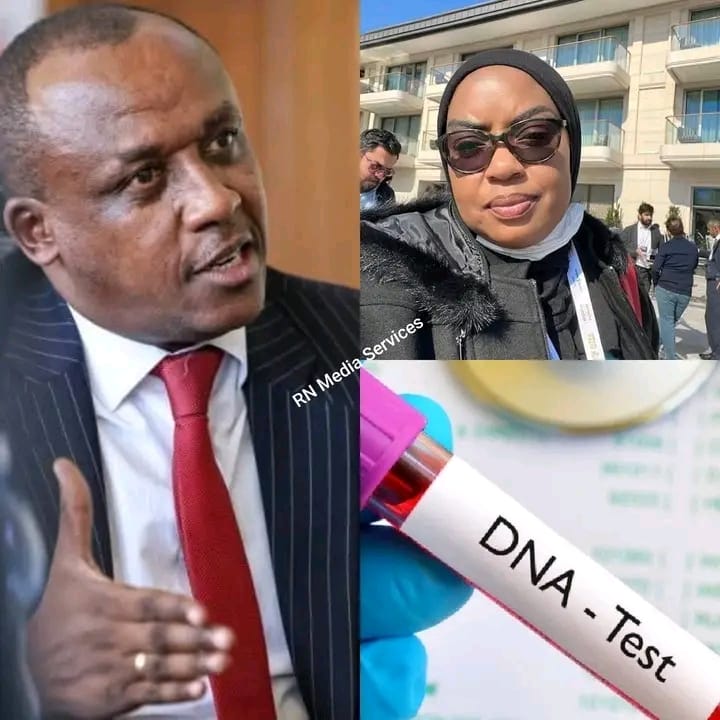
In a dramatic courtroom showdown that has captured national attention, Makueni Governor Mutula Kilonzo Jnr has emerged victorious in a high-profile paternity dispute after a court-ordered DNA test confirmed that a child he had been supporting for years is not biologically his.
The judgment, delivered by the Family Division of the High Court in Nairobi, found that the governor had been “deceived and financially exploited” by his former partner, Ms. Victoria Ndunge, who had claimed that the governor was the father of her now seven-year-old child.
Justice [Name], presiding over the case, ruled in favour of Governor Mutula and ordered Ms. Ndunge to refund KSh 15 million — the amount he had spent over the years on child support, school fees, and upkeep. The court also ordered her to issue a public apology to the governor for the emotional distress and reputational damage caused by the false claim.
The Shocking Revelation
According to court documents, the two parties had met several years ago and maintained a short-lived relationship. When Ms. Ndunge later informed Mutula that she was pregnant, the governor allegedly took full responsibility, providing financial support for the child’s welfare from birth through early childhood.
However, the governor’s legal team revealed that recent inconsistencies in communication and conflicting statements about the child’s upbringing prompted him to seek a DNA test in mid-2024. The test, conducted at a government-accredited medical facility, returned a conclusive result — a 0% probability of paternity.
The revelation stunned both the courtroom and the public. Governor Mutula’s lawyers argued that their client had been the victim of “a deliberate act of deception intended to extract financial gain and tarnish his public image.”
“This case is a victory not only for our client but for truth and justice,” said his lead counsel outside the courthouse. “The governor acted in good faith as any responsible man would, but science has now cleared his name. He has suffered years of emotional turmoil and financial loss.”
Court’s Strong Rebuke
In her ruling, the presiding judge condemned the deliberate deceit, stating that such actions undermine the integrity of family law and erode public trust.
“It is unconscionable for any individual to willfully mislead another into assuming parental responsibility for a child who is not biologically theirs,” the judge said. “The court cannot condone deceit that causes prolonged emotional suffering and financial strain.”
The court’s order for reimbursement of KSh 15 million was described by legal analysts as “unprecedented” — a rare instance in which compensation was awarded in a paternity dispute. While the ruling is expected to face an appeal, it is already being hailed as a landmark decision likely to influence future family law cases in Kenya.
Public Reaction and Social Media Frenzy
News of the ruling spread like wildfire across social media, sparking heated debates about trust, responsibility, and the importance of DNA testing in paternity cases. Many users, especially men, expressed support for the governor and urged others to take precautionary steps before assuming parental duties.
One viral post read:
“Gentlemen, spare that KSh 22,000 and go for a DNA test — many are going broke, taking loans and stressing over children who aren’t theirs.”
The phrase “#DNAIsPeaceOfMind” trended on X (formerly Twitter) and Facebook within hours of the judgment. Memes, jokes, and public opinion pieces flooded online spaces, turning the case into a national conversation about fatherhood and accountability.
Others, however, cautioned that while DNA testing can protect men from deceit, it also raises sensitive questions about trust in relationships and the privacy of children involved.
Legal and Social Implications
Legal experts have described the ruling as a potential game-changer for family and paternity law in Kenya. According to lawyer and legal analyst Caroline Muriuki, the case highlights a growing need for mandatory paternity verification in disputed cases before financial or legal obligations are imposed.
“This decision may prompt policymakers to consider reforms that ensure fairness in paternity claims,” Muriuki noted. “It’s not just about protecting men — it’s about ensuring that justice is balanced and evidence-based.”
The Kenya Law Society has also weighed in, urging restraint in public discussions to protect the child’s identity and welfare. “While the ruling sets a precedent, we must remember that a minor is involved, and their privacy must be respected,” said the LSK spokesperson.
Governor Mutula’s Response
In a brief statement released through his office, Governor Mutula thanked the judiciary for what he called “a fair and evidence-based verdict.” He also urged Kenyans to approach matters of family and paternity with honesty and integrity.
“I have endured years of falsehood and humiliation, but truth has prevailed,” he said. “Let this be a lesson — not one of bitterness, but of transparency and accountability.”
As the dust settles, the case of Mutula Kilonzo Jnr versus Victoria Ndunge will likely remain etched in Kenya’s legal history — not only as a sensational story of deception and justice, but as a catalyst for a national conversation about truth, responsibility, and the price of trust.
— End —

